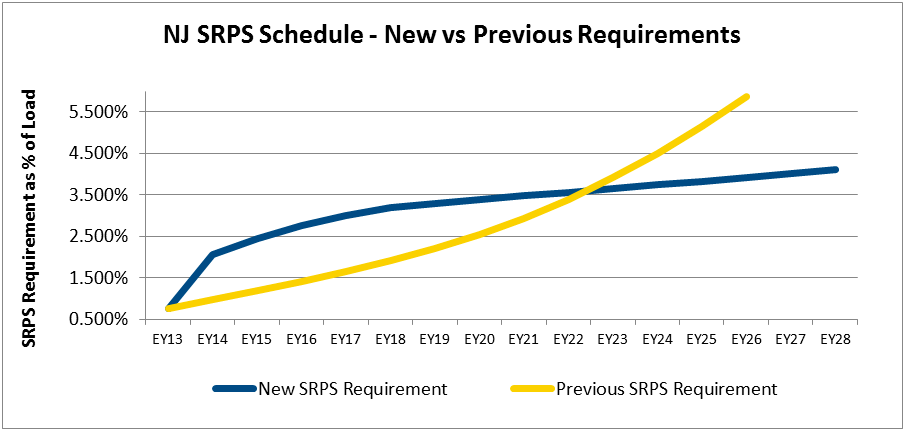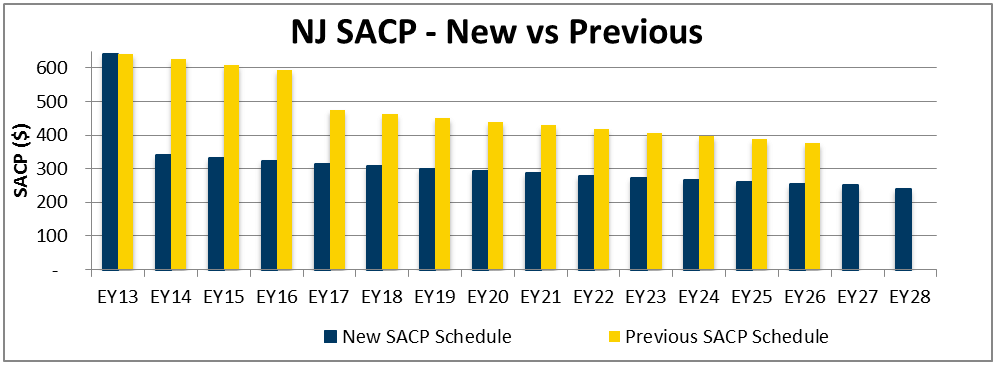New Jersey Passes Legislation to Stabilize Its Solar Market
Tuesday, Jul 10 2012
By signing Assembly bill A2966 into law, Governor Christie joined the New Jersey legislature in recognizing the importance of the solar industry’s role in diversifying New Jersey’s energy mix and boosting its economy. This legislation addresses the current oversupply of N.J. solar renewable energy credits (SRECs), brings stability back to the N.J. solar market, and keeps the N.J. solar industry growing over the next several years.
SEIA worked tirelessly with various stakeholders to shape and move this legislation from concept to law. This legislation affects core elements of the N.J. SREC program in several ways.
- Accelerates the Solar RPS requirement.
The new law accelerates the solar renewable portfolio standard (SRPS) by approximately 4 years. Due to declining costs and the attractive investment environment in the N.J. market, solar development out-paced anticipated demand of the program. The graph below depicts new program requirements (blue line) allowing the market to absorb high demand in earlier years to bring supply and demand back into balance but reducing the SRPS in later years.

- Reduces the Solar Alternative Compliance Payment.
Reflecting the dramatic declines in the cost of installing solar energy, the new law significantly reduces the Solar Alternative Compliance Payment (SACP) and codifies a 15-year SACP schedule.

- Clarifies of program eligibility for net metered systems.
The new law addresses an important definition of ‘connected to the distribution system’ by clarifying that the distribution system includes distribution lines that are 69kilovolts and lower. This important change clarifies that large net metered systems can connect to higher voltage lines, creating more space on the distribution system for all solar systems.
- Defines SREC program eligibility for grid-connected projects.
The new law allows 80 megawatts per year of grid-connected projects in Energy Years 14 – 16. Additionally, it establishes a Board of Public Utilites (BPU) review process, including public comment and review of impact on the SREC market for future grid-connected projects.
- Promotes development of projects located on brownfields and landfills.
Non-net metered systems located on brownfields and landfills are given favored status, including automatic qualification for the SREC program and potential additional incentives.
- Authorizes aggregated net metering for certain public entities.
The bill authorizes aggregated net metering for certain public entities under certain conditions.
- Increases the SREC banking life.
The new law extends the ‘shelf life’ of SRECs from 3 years to 5 years. Although giving developers more flexibility to retain SRECs rather than sell them into a long market, this extension of SRECs also makes it more difficult to assess future market conditions.